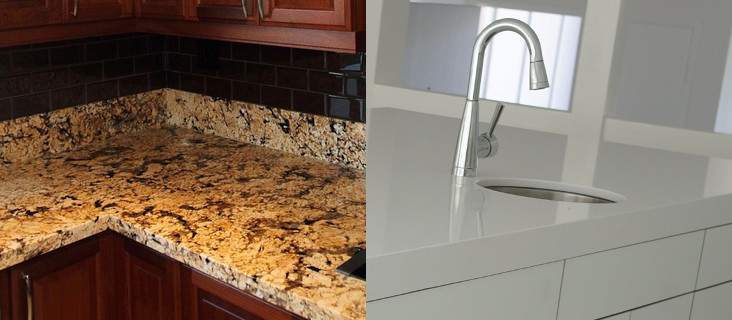
July 13, 2016 Planning, Kitchen, Bathroom
When it comes to building a new home or remodeling it may seem like there are endless decisions to be made from the direction that your doors will swing to what type of flooring to install. Luckily, for our clients, Homeworks is equipped with a full time selections specialist and kitchen/bath designer that take the time on each project to fully understand the home owner’s vision and style. However, we still leave the final decisions up to the owners and therefore think that it is a good idea for anyone doing a remodel or new build to do a bit of research ahead of time. Having a general idea of the style you are going for before signing an agreement will make your process, come decision time, much easier. One of the many choices you’ll come across is what type of countertops to install. You may find yourself asking Granite or Quartz? Well, Granite countertops remain in high demand for their beauty and durability. Quartz countertops, often called engineered stone countertops, are similar in appearance and performance, yet quite different in their makeup. But how do you know which one you want and which one will be right for your home? Both types have their enthusiasts. The key is to understand them more fully, and when you do, you’ll know which type suits your purposes the best.
Understanding the Differences
Granite, or natural stone, is indeed 100% natural since it is mined directly from the earth in very large blocks. These blocks are sawed into slabs or made into tiles and then polished on one side at the quarry before being shipped to the broker or fabricator. Fabricators cut shapes from the slabs according to your countertop specifications and then profile and polish the edges. With Homeworks all you need to know is what you want, we take care of the rest.
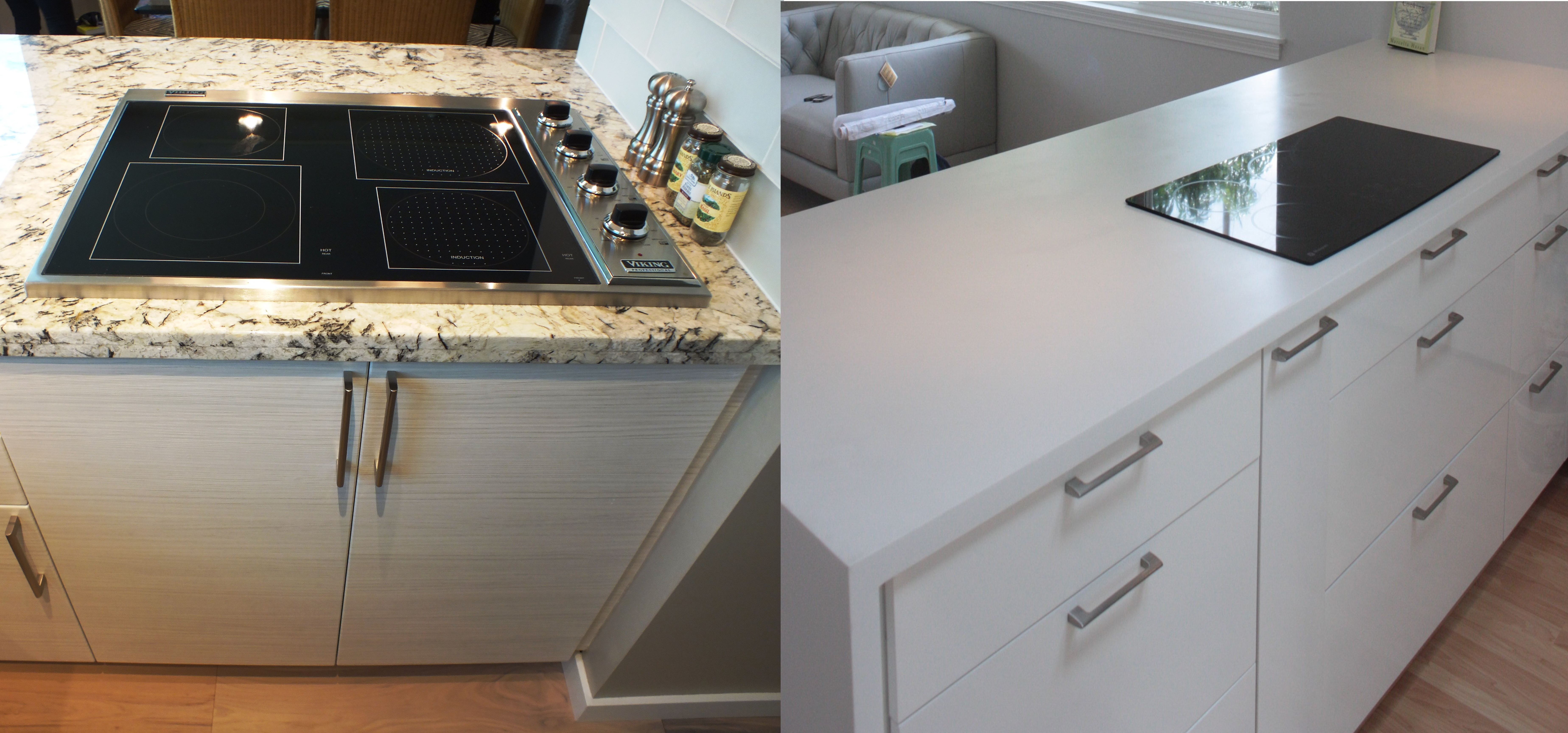
Quartz, on the other hand, is an “engineered” stone, which means that a manufacturing plant uses various grades and sizes of quartz crystals and mixes them with resin and pigment (for color) in a ratio of 93% quartz to 7% resin (yes, we’ll still refer to quartz as natural stone, but it’s not as natural as granite). Fabricators create quartz countertops in much the same way as they do granite countertops: by cutting the shapes from the slab and then profiling and polishing the edges.
Pros & Cons of Granite
Perfect Imperfections
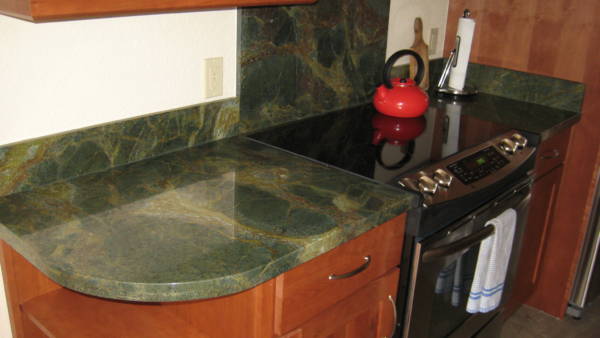
As mentioned earlier, Granite is mined straight from the Earth in large, natural chunks and is not treated by the manufacturing company other than cutting into slabs and polishing one finished side. Therefor they are “imperfect” slabs that are stunning to the eye but make it tough on some Home owners that want to match the consistency of the rest of their home. However, for others, this is Granite greatest pro; the imperfections make it completely unique!
Seam-not so-less
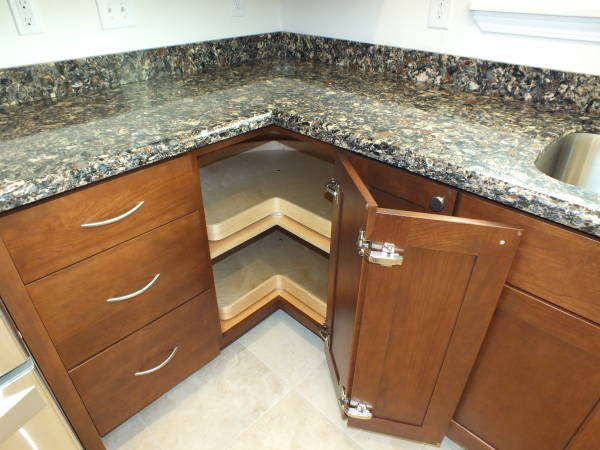 Unless you are only using granite for a small, square countertop, several pieces will be used to complete your project. These pieces will join somewhere in your kitchen or bathroom and there will be seams that are almost impossible to hide. With Homeworks professional installers and kitchen/bath designer the seams are as hidden as possible by matching the seam color to the granite, making the most unobtrusive cuts possible and by joining the slabs in less used areas. Even with these steps, seams in granite will still be quite noticeable for those that are looking for them.
Unless you are only using granite for a small, square countertop, several pieces will be used to complete your project. These pieces will join somewhere in your kitchen or bathroom and there will be seams that are almost impossible to hide. With Homeworks professional installers and kitchen/bath designer the seams are as hidden as possible by matching the seam color to the granite, making the most unobtrusive cuts possible and by joining the slabs in less used areas. Even with these steps, seams in granite will still be quite noticeable for those that are looking for them.
Durable, But Not Unbreakable
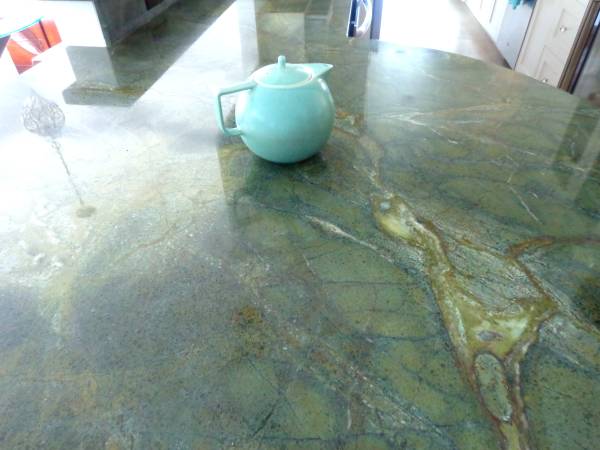
Granite is an extremely strong stone formed by the slow crystallization of magma below Earth’s Surface. However, it does have a tendency to chip if it suffers a severe blow from a dropped pan or heavy kitchen appliance and is common for long time granite owners to have a few dime sized chips here and there. The good news is that it is not uncommon for a granite countertop to last for 50 or more years without a scratch because it really does depend on how well it’s maintained.
Maintenance
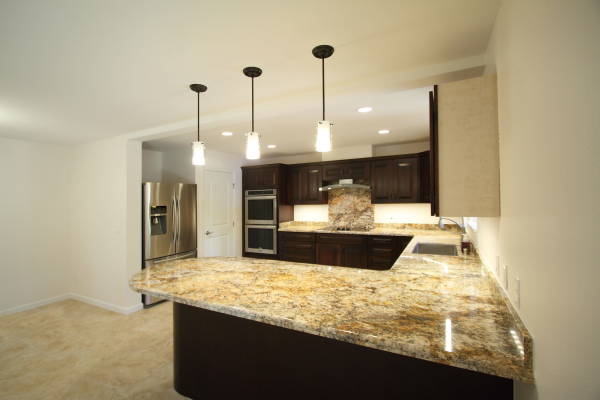
To maintain this 50 year life span on your granite you must follow best maintaining practices which require you to seal it every one to three years, depending on the type of use. This sealant will keep the countertops from collecting liquid in its natural pours and staining because granite is not naturally stain resistant. Only a strong seal will keep it from staining under heavy use. For further information on best Granite Cleaning Practices check out this Pinterest page for professional and home remedy ideas!
Pros And Cons Of Quartz
Stainless
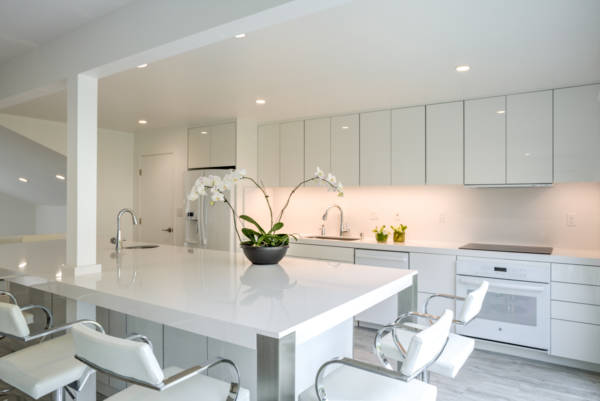
One of the biggest advantages to Quartz over granite is that it NEVER needs to be sealed and in most cases is completely stainless. It is fully resistant to acid and alkali as well as being wear-resistant and non-slip. The fact that quartz really requires zero maintenance besides the basic wipe down after use is a significant incentive for most people when choosing.
But Not Quite Stainless
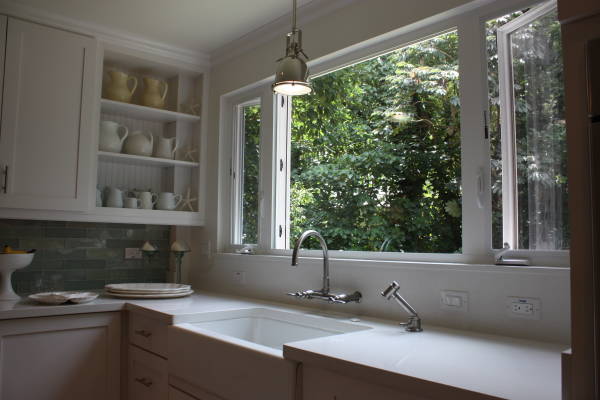
Still yet, even though no EARTHLY PRODUCTS may or will stain your quartz countertops, an over-exposure to sunlight can cause it to discolor over time. With this in mind you might want to keep an eye on your kitchen design and how the sun hits certain areas of the countertops. Homeworks kitchen designer and selections specialist will work with you to ensure the best possible solution and make sure you are not placing a beautiful quartz countertop right in front of a window or door that gets a significant amount of sun exposure.
Strength vs. Weight
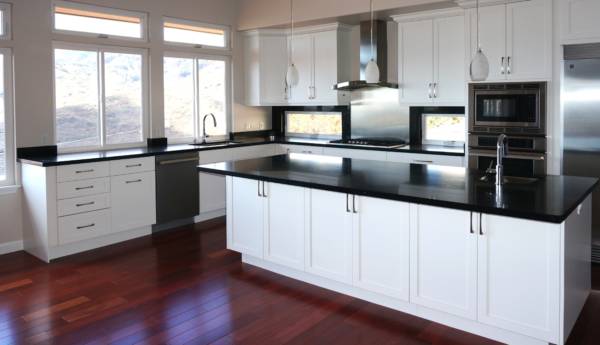
Quartz and granite are relative equals when it comes to which one chips easier, but quartz tends to be considered stronger because it is more flexible. Granite that is not installed properly or that received tremendous weight strain is more liable to crack than quartz. On the other hand, quartz is even heavier than granite, which says alot. Both granite and quartz need to be professionally installed, they’re simply too heavy and unwieldy for the average amateur.
No Seams
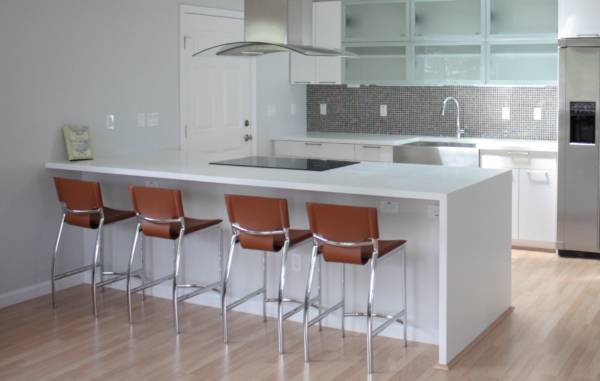
Yes, the seams are still there and yes, they are still barely visible, but most quartzs tops do not show their seams, which makes for a very clean, modern look. Quartz that has multiple colors or patterns can be more difficult to hide, but almost nothing would be as conspicuous as granite.
Granite Countertops, Quartz Countertops, Countertops, Kitchen Design, Finishes, Durability